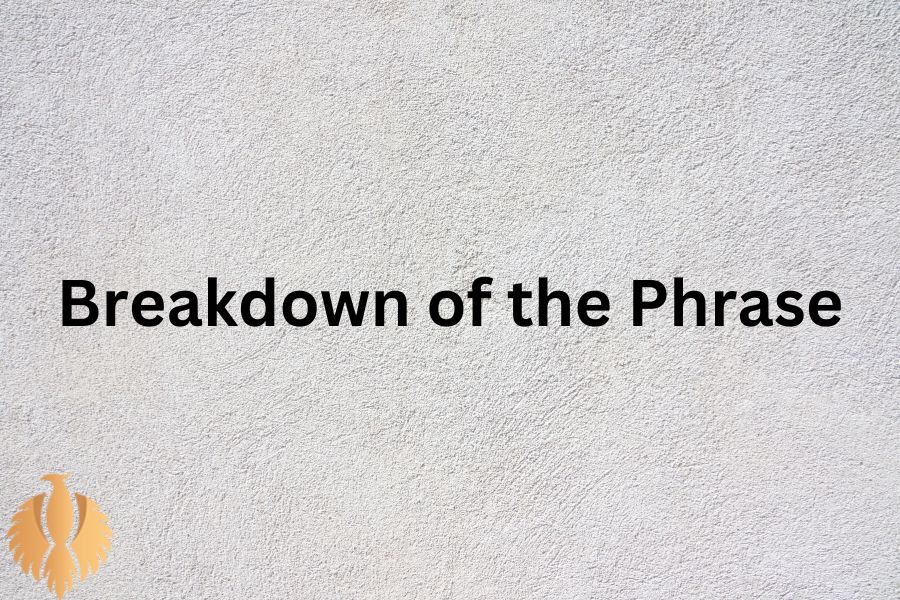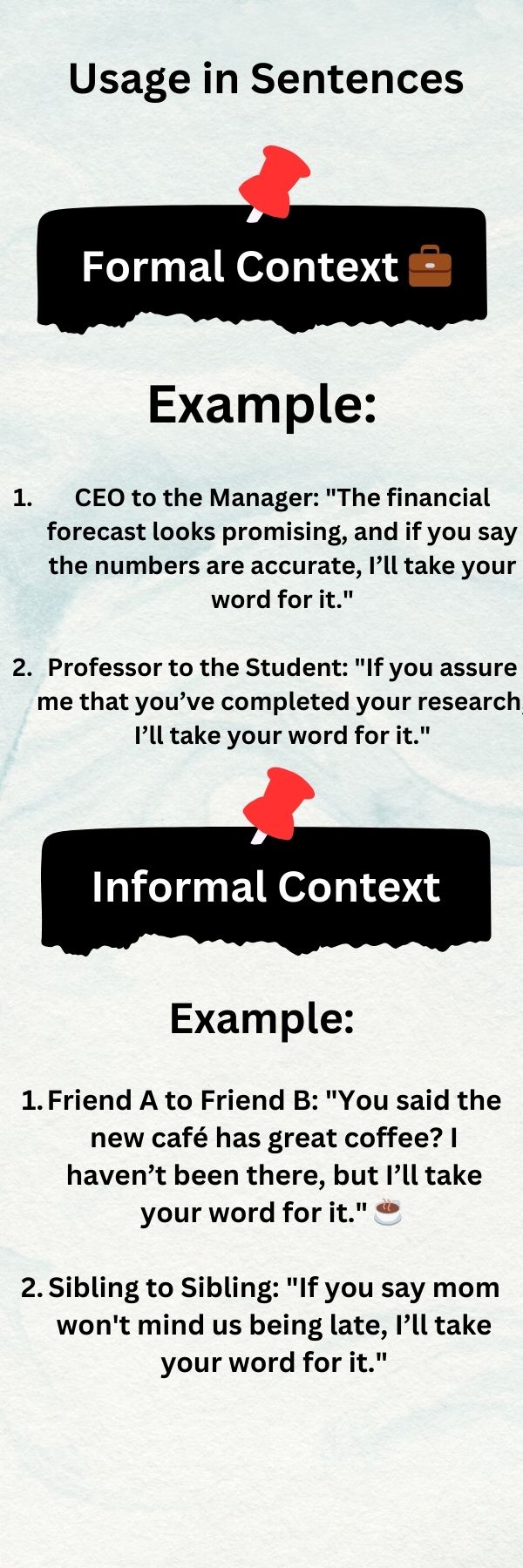When I first encountered the phrases “role call” and “roll call,” I was puzzled by their identical pronunciation but different meanings.
“Roll call” is the correct term, referring to the practice of reading out names to check attendance, commonly used in classrooms or meetings.
For example, a teacher might say, “Let’s start with roll call to see who is here today.” This term originates from the historical use of a roll of parchment for listing names.
Conversely, “role call” is a frequent misspelling, with “role” referring to the function or part someone plays, such as an actor’s role in a play.
Understanding these distinctions not only clarifies their proper usage but also deepens one’s appreciation for the nuances of the English language.
Additionally, the phrase “I’ll take your word for it” is an interesting example of English grammar and idiomatic expression. It means to believe what someone says without requiring further evidence, based on trust.
For instance, if a friend assures you that a restaurant is excellent, you might respond, “I’ll take your word for it,” indicating your trust in their judgment.
You might also enjoy: Top 100 Commonly Used Verbs That Start With B [2024]
Breakdown of the Phrase

“I’ll”
“I’ll” is a contraction of “I will.” This construction is used to indicate future actions or decisions. The use of “will” implies a definite intention to act in a certain way. Here, it conveys a promise or a commitment.
Example:
- I’ll visit you next week.
- I’ll help you with your homework.
“Take”
The verb “take” in this context means to accept or believe. It suggests an action where someone accepts information as true based on another person’s assurance.
Example:
- Accept this gift from me as a gesture of my gratitude.
- He took my advice and applied for the job.
“Your Word”
“Your word” refers to what someone has said or promised. In idiomatic expressions, it implies a person’s assurance, statement, or promise. It reflects the trustworthiness of the individual’s speech.
Example:
- You have my word that I will be there on time. ⌚️
- Can I take your word on this?
“For It”
“For it” completes the idiom by connecting the acceptance (“take”) of someone’s assurance (“your word”) to a specific context or situation. It finalizes the idiomatic expression, indicating that the speaker will trust the information provided without needing further evidence.
Example:
- She said she finished the project, and I took her word for it.
- He claims the report is accurate, and I’ll take his word for it.
Usage in Sentences

Formal Context
In a formal setting, such as a business meeting or academic discussion, this phrase can be used to show trust in someone’s expertise or statement.
Example:
- CEO to the Manager: “The financial forecast looks promising, and if you say the numbers are accurate, I’ll take your word for it.”
- Professor to the Student: “If you assure me that you’ve completed your research, I’ll take your word for it.”
Informal Context
In informal conversations, it often implies casual trust among friends, family, or acquaintances.
Example:
- Friend A to Friend B: “You said the new café has great coffee? I haven’t been there, but I’ll take your word for it.” ☕️
- Sibling to Sibling: “If you say mom won’t mind us being late, I’ll take your word for it.”
Examples
To provide a variety of scenarios, let’s look at some unique names and situations where this idiom can be effectively used.
- Nina and Jasper
Nina: “The concert starts at 8 PM, not 7 PM.” Jasper: “Are you sure? I thought it was earlier.” Nina: “Yes, I checked the tickets.” Jasper: “Alright, I’ll take your word for it.”
- Professor Grey and Emily
Professor Grey: “The deadline for the essay is next Friday.” Emily: “I heard it was this Friday.” Professor Grey: “No, it’s definitely next Friday.” Emily: “Okay, I’ll take your word for it.”
- Carlos and Mei
Carlos: “The new software update will fix all the bugs.” Mei: “That’s hard to believe after all the issues we’ve had.”Carlos: “Trust me, I’ve tested it thoroughly.” Mei: “I’ll take your word for it.”
- Manager Alex and Employee Sam
Alex: “We’ll see an increase in sales by the end of the quarter.” Sam: “Do you really think so?” Alex: “Yes, our new marketing strategy is very effective.” Sam: “I’ll take your word for it.”
Variations of the Idiom
There are several variations of the idiom “I’ll take your word for it” that convey similar meanings. Understanding these can help in recognizing the phrase in different contexts.
You might also enjoy: Top 100 Commonly Used Verbs That Start With T [2024]
“I’ll take your word on it”
This variation is almost identical in meaning and is used interchangeably with “I’ll take your word for it.”
Example:
- Julia to Robert: “You said the movie is worth watching, so I’ll take your word on it.”
- Coach to Player: “You assure me that you’re fit to play, and I’ll take your word on it.”
“I trust you”
This phrase is a more straightforward way of expressing the same sentiment. It directly indicates belief in the other person’s statement.
Example:
- Lawyer to Client: “If you say you have all the documents ready, I trust you.”
- Mother to Daughter: “You’ve been working hard, and I trust you’ll do well in your exams.”
“I believe you”

Another direct expression that indicates acceptance of what someone has said.
Example:
- Coach to Athlete: “You say you’ve recovered from the injury, I believe you.”
- Colleague to Colleague: “You have already completed the report. I believe you.”
“I’ll take your word as gospel”
This is a more emphatic way of saying that you completely trust someone’s statement.
Example:
- Teacher to Student: “You’ve prepared for the presentation, and I’ll take your word as gospel.”
- Boss to Employee: “If you assure me the project is on schedule, I’ll take your word as gospel.”
Exploring the Grammar
Verb Tenses
The verb tenses used in the idiom are crucial for proper grammatical understanding. The phrase “I’ll take your word for it” uses the future simple tense (“will take”), indicating a future action.
Future Simple Tense:
- I will (I’ll) take
- You will (You’ll) take
- He/She/It will (He’ll/She’ll/It’ll) take
- We will (We’ll) take
- They will (They’ll) take
Example:
- “I’ll take your word for it.” (future action of taking someone’s word)
Modal Verbs
“Will” is a modal verb that expresses intention or future action. In this idiom, it reflects the speaker’s decision to trust someone’s statement in the future.
Example:
Intent in the future: “I will visit the museum tomorrow.”
Decision in the future: “I will take your word for it.”
Direct and Indirect Speech

The idiom can be used in both direct and indirect speech, providing flexibility in conversation and writing.
Direct Speech:
- Direct Quote: Nina said, “The concert starts at 8 PM.” Jasper replied, “I’ll take your word for it.”
- Exact Words: Alex assured Sam, “We’ll see an increase in sales.” Sam responded, “I’ll take your word for it.”
Indirect Speech:
- Paraphrase: Nina told Jasper that the concert starts at 8 PM. Jasper said he would take her word for it.
- Reported Speech: Alex assured Sam that they would see an increase in sales, and Sam said he would take Alex’s word for it.
Conditional Sentences
The idiom can also be used in conditional sentences, often to express a situation dependent on another event or action.
Example:
- First Conditional: “If you say the document is ready, I’ll take your word for it.”
Contextual Examples
Professional Setting
In professional environments, trust is essential for teamwork and project completion. Using this idiom can facilitate smoother interactions and convey trust.
Corporate Meeting:
Manager Ethan: “The client has approved the proposal.” Team Member Rachel: “Are you sure? I haven’t received any confirmation.” Manager Ethan: “Yes, I received the confirmation this morning.” Team Member Rachel: “Alright, I’ll take your word for it.”
Project Discussion:
Lead Developer Isaac: “The software update will resolve the issues.” Junior Developer Chloe: “I’ve encountered so many bugs recently.” Lead Developer Isaac: “We’ve tested it thoroughly this time.” Junior Developer Chloe: “I’ll take your word for it.”
Client Interaction:
Consultant Michael: “The new strategy will improve your market reach significantly.” Client Sarah: “I’m skeptical because our past strategies haven’t worked.”Consultant Michael: “I understand your concerns, but our research supports this approach.” Client Sarah: “Okay, I’ll take your word for it.”
Academic Setting
In academic settings, this phrase can be used to express trust in someone’s expertise or knowledge.
Student-Professor Interaction:
Professor Harris: “The final exam will cover chapters 1 through 10.” Student Olivia: “I thought we were only doing chapters 1 through 8.” Professor Harris: “No, we decided to include the entire textbook.” Student Olivia: “Alright, I’ll take your word for it.”
Study Group Discussion:

Student Jake: “The answer to question 5 is in chapter 3.” Student Emma: “I didn’t see it there. Are you sure?” Student Jake: “Yes, it’s on page 45.” Student Emma: “I’ll take your word for it.”
Research Collaboration:
Researcher Nina: “The data indicates a significant trend.” Researcher Leo: “I haven’t analyzed the recent data yet.”Researcher Nina: “I reviewed it thoroughly last night.” Researcher Leo: “I’ll take your word for it.”
Social Setting
In social contexts, using this idiom shows casual trust and can help maintain friendly relationships.
Friends Chatting: ♂️
Friend Mia: “The new restaurant downtown is amazing.” Friend Alex: “I’ve heard mixed reviews about it.” Friend Mia: “Trust me, the food is excellent.” Friend Alex: “I’ll take your word for it.”
Family Dinner: ️
Brother Liam: “Grandma said she’s feeling much better now.” Sister Zoe: “I was really worried about her.” Brother Liam: “She sounded very positive on the phone.” Sister Zoe: “I’ll take your word for it.”
Neighborhood Gathering:
Neighbor Sam: “The park renovation will be completed by next month.” Neighbor Lisa: “That’s sooner than I expected.” Neighbor Sam: “The contractor assured me of it.” Neighbor Lisa: “I’ll take your word for it.”
The Importance of Context
Understanding the context in which “I’ll take your word for it” is used can greatly affect its meaning and impact. Whether in professional, academic, or social settings, the phrase builds trust and conveys a willingness to accept someone’s statement.
Trust and Credibility

Using this idiom can foster trust and credibility in conversations. It indicates that the speaker is willing to accept the other person’s statement without demanding proof, which can strengthen relationships.
Example:
Team Leader Mark: “The supplier confirmed they can deliver the materials on time.” Team Member Ava: “We’ve had delays in the past.” Team Leader Mark: “They’ve made improvements to their process.” Team Member Ava: “I’ll take your word for it.”
Politeness and Diplomacy
In situations where disputing a claim might lead to conflict, using this idiom can maintain politeness and diplomacy. It avoids confrontation by expressing tentative acceptance.
Example:
Colleague Ryan: “The new policy will benefit the team.” Colleague Jenna: “I’m not convinced it will.” Colleague Ryan: “Let’s see how it goes, but I’ve heard positive feedback.” Colleague Jenna: “I’ll take your word for it.”
Avoiding Conflict
In personal interactions, the idiom helps in avoiding conflict and maintaining harmony. It shows that one is willing to give the other the benefit of the doubt.
Example:
Parent John: “Your room looks cleaner today.” Teenager Katie: “I spent the whole afternoon cleaning it.” Parent John:”I didn’t check it yet, but I’ll take your word for it.”
Nuances in Meaning
While “I’ll take your word for it” generally implies trust, the tone and context can add nuances to its meaning. It can range from genuine trust to polite skepticism.
Genuine Trust
When used in a tone of genuine trust, the idiom reinforces a strong belief in the other person’s reliability.
Example:
Friend Ben: “I fixed your computer issue.” Friend Lucy: “You always know how to handle these things. I’ll take your word for it.” ️
Polite Skepticism
Sometimes, the idiom is used with a hint of polite skepticism, indicating that the speaker is reserving judgment but is willing to accept the statement for now.
Example:
Co-worker Ethan: “The new software update should fix all the bugs.” Co-worker Maya: “We’ve had so many issues before. I hope you’re right.” Co-worker Ethan: “I checked it myself.” Co-worker Maya: “I’ll take your word for it.”
Diplomatic Deferral
In some cases, the idiom can be used to diplomatically defer further discussion, especially when there’s a disagreement or doubt but no immediate need to resolve it.
You might also enjoy: Top 100 Commonly Used Verbs That Start With D [2024]
Practical Applications
Building Trust in Teams
In team settings, especially in workplaces, using this idiom can build trust among members. It shows willingness to rely on each other’s expertise and decisions.
Example:
Project Manager Claire: “The new timeline is feasible with our current resources.” Team Member Josh: “We’ve struggled with similar timelines before.” Project Manager Claire: “We have a better plan this time.” Team Member Josh: “I’ll take your word for it.” ⏳
Encouraging Open Communication
Encouraging the use of this idiom can foster open communication, as it shows that team members value and trust each other’s input.
Example:
Team Lead Sarah: “Our client feedback suggests we should revise the design.” Designer Leo: “I didn’t receive any negative feedback.” Team Lead Sarah: “I reviewed the latest comments.” Designer Leo: “I’ll take your word for it.” ➖
Enhancing Learning Environments

In educational settings, using this idiom can create a supportive learning environment where students feel their contributions and knowledge are valued.
Idiomatic Expressions and Their Cultural Impact
Idiomatic expressions like “I’ll take your word for it” play a significant role in shaping cultural communication norms. They often reflect societal values such as trust, politeness, and the importance of relationships.
Trust and Relationships
In cultures where trust and relationships are highly valued, this idiom emphasizes the importance of believing in others and maintaining harmony.
Example:
Family Discussion:
Mother Linda: “The family reunion is next weekend.” Son Daniel: “Are you sure? I thought it was later.” Mother Linda: “I confirmed with everyone.” Son Daniel: “I’ll take your word for it.”
Politeness and Respect
In many cultures, politeness and respect in communication are crucial. This idiom helps in expressing doubt or disagreement respectfully without causing offense.
Example:
Formal Meeting:
Executive Laura: “The new policy will streamline our operations.” Manager Chris: “There might be some challenges initially.” Executive Laura: “We’ve prepared for those.” Manager Chris: “I’ll take your word for it.”
Language Learning

For language learners, understanding and using idiomatic expressions correctly is essential for achieving fluency and sounding natural in conversation.
Example:
Language Class:
Instructor Ms. Garcia: “In Spanish, ‘Te creo’ means ‘I believe you.'” Student Alex: “So it’s similar to ‘I’ll take your word for it’ in English?” Instructor Ms. Garcia: “Exactly.” Student Alex: “I’ll take your word for it.”
Conclusion
The idiom “I’ll take your word for it” is a versatile and valuable phrase in the English language, used to express trust, acceptance, and sometimes polite skepticism.
By understanding its grammatical structure, variations, and applications in different contexts, speakers can enhance their communication skills and build stronger, more trusting relationships.
Whether in professional, academic, or social settings, this idiom reflects the importance of trust and the willingness to rely on others’ statements and expertise.
By incorporating it effectively into conversations, one can navigate various interactions with grace and confidence.

Hi, welcome to my blog! My name is Omid and I am thrilled to have you here! I am an English language teacher with 12 years of experience and hold multiple international certifications (TESOL, IELTS, TOEFL, PTE, CELTA). Additionally, I hold a PhD in Applied Linguistics with a specialization in Teaching English as a Second Language (TESL), which fuels my passion for teaching English and assisting others in mastering the language. To me, nothing is more rewarding than helping individuals enhance their English language abilities through various methods. So, let’s embark on this journey of learning English together.




